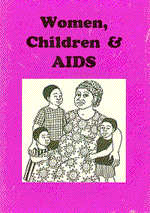![]()
|
AIDS:
A multifaceted South African crisis |
|||
|
JOHANNESBURG - It's Wednesday morning at Chris Hani Baragwanath Hospital in Soweto -- the world's largest public health facility -- and once again 26 year-old Florence Ngobeni is struggling to raise her audience to political action. The pregnant women listening to Ngobeni speak are all HIV positive. Some live nearby in one of the 29 disparate neighborhoods that make up this scattered and legendary township. Others have traveled hundreds of kilometers from rural areas in provinces like Kwa-Zulu Natal -- a former homeland battling to overcome its apartheid past. Despite their varied circumstances, all 28 of the women present hope that she will be one of the lucky ones able to avoid passing this dreaded virus on to her baby. Ngobeni, a counselor in the HIV perinatal unit, criss-crosses before the long row of women telling them that the drug that can help -- AZT -- is in desperate short supply. Moving her hand from her belly to her breast, Ngobeni asks the women, "Do you know what is AZT?" Ngobeni asks the rhetorical question again and again in many native tongues. Sometimes her words are punctuated with the clicks of Xhosa or just exasperated pauses. "Because of our minister Zuma, we don't have AZT," Ngobeni says. "Is it okay that you don't have it? Eh, mama? Is it right?" Ngobeni asks. "It's not right," she answers for the crowd. "The government is charging us weight [a tax] on every item we buy so where is this money going?" Ngobeni asks the group. The only woman to speak up is 26-year-old Kate Mpungose. With her swollen belly hanging between her legs, Mpungose leans forward and in Zulu asks, "How can we vote for a government that doesn't care for us?" |
|
||

